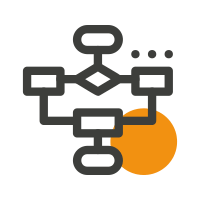Real Results: Your Paid Search Advertising Partner
Secure Consistent Business Growth with Specialist Ad Campaigns
Thrive Online with Focused Paid Search Strategies
In the digital world, standing out means seizing the right opportunities to connect with your audience. At Search Traffic Success, we understand the challenges you face. The online marketplace is crowded, and the fight for visibility is tough. That’s why our dedicated Paid Search Advertising strategies are different. We focus on what truly matters: sustainable growth, high-quality leads, and a significant return on investment. By leveraging tailored advertising campaigns, we help you make meaningful connections with potential clients, driving tangible results that positively impact your bottom line. No jargon, no empty promises — just real results.

Real Connections Through Accurate Targeting
Understanding your unique business needs, we utilise precision targeting to place your brand in front of customers who are actively seeking your services, enhancing relevance and response.

Maximising ROI with Smart Campaigns
By optimising your ad spend, we ensure every dollar works harder, connecting strategy with actionable insights to foster growth and improve returns without increasing your advertising budget.
Search Traffic Success
Our tailored services
We delve deep into analytics to identify search terms that align with your business offerings, driving qualified traffic and reducing wasted ad spend.
Understanding the landscape is key; we analyse competitor strategies to find untapped opportunities, helping you stand out in the crowded digital marketplace.
Our team crafts unique, bespoke advertising strategies, reflecting your brand’s strengths and the distinct behaviour of your target audience for maximum impact.
We don’t set and forget. By constantly tracking ad performance, we make data-driven adjustments for ongoing improvement, ensuring your campaigns maintain their effectiveness.
Every campaign is fine-tuned with a sharp focus on return on investment, ensuring that your advertising budget garners maximum results, enhancing your profitability over time.
our approach
Key Metrics For Measuring Marketing Success
In the digital realm, success hinges on clear, measurable outcomes. Engaging with a Paid Search Advertising Agency allows businesses to focus on precise indicators of online marketing triumphs. By strategically honing in on these key metrics, businesses not only gain invaluable insights into campaign performance but also navigate the path of continual growth and market prominence. It’s about making every click count and transforming data into strategic milestones, ensuring your digital marketing investment yields tangible, rewarding results.
Customer Acquisition Costs (CAC)
30% is the average reduction we see in CAC (in 3 months) from the day we manage it. Reduce your customer acquisition cost with our expert management of Google Ads and Shopping campaigns.
Average Order Value (AOV)
28% is the average increase in AOV we achieve in a 12 month span. Boost your average order value with data-driven insights, including order bumps, bundling, and upselling, expertly identified by our team.
Customer Lifetime Value (CLV)
We grew customer lifetime value, on average across all industries we have grown CLV by over 55% in an 12 month period. Increase your CLV with referral programs, personalised campaigns, and full funnel content marketing.
Conversion Rate
68% is the average increase in conversion rate on all Google Shopping campaigns we manage (within a 12 month period), through a suite of optimisation activities like revamping abandon cart sequences or improving product landing pages.
Let Our Paid Search Advertising Agency Scale Your Business
Why Choose Search Traffic Success
Expert-Led Strategies Within the complex realm of online advertising, our team of seasoned experts navigates with precision. We’re not just tacticians; we’re your strategic partners committed to understanding your business and identifying growth levers that others often overlook. This approach ensures that your paid search campaigns are not just operational but are strategic and success-oriented.
Tailored Campaigns, Not Cookie-Cutter Solutions Recognising the uniqueness of your business, we shun one-size-fits-all solutions. Our strategies are tailor-made, weaving in your brand’s specifics, industry dynamics, and the competitive landscape. This custom-tailored approach means your ad campaigns are calibrated for your specific business goals, offering a pathway to real and measurable growth.
Transparent Reporting Clarity drives trust and informed decision-making. That’s why we maintain a policy of full transparency, providing clear, comprehensive reports that give you insights into what matters most. You’ll see where every penny goes and understand the performance metrics, giving you confidence in your investment and our stewardship of your campaigns.
Responsive Service and Support In the fluid world of digital marketing, being agile is paramount. Our team prioritises responsiveness, ensuring that your business can pivot quickly based on new information or emerging trends. This agility enhances campaign performance, helps seize timely opportunities, and keeps your business ahead of the curve.
Commitment to ROI Every business investment demands a return, and advertising is no different. We’re focused on ensuring that your ad spend translates into tangible results. By continuously optimising for ROI, we work to turn your advertising budget into profit, driving sustainable growth that contributes to your business’s long-term success.

Increasing Online Visibility
SEO and Google Ads propel your business to the forefront online, ensuring your brand captures attention in a crowded digital marketplace.

Attracting More Customers
Effective Paid Search strategies lure higher traffic, turning casual browsers into loyal customers, catalysing your brand's growth and recognition.

Precise Targeting and Cost-Effective Advertising
PPC campaigns offer unparalleled control, reaching your ideal demographic with precision, ensuring every dollar spent works towards meaningful engagement.

Measurable Growth and Return on Investment
Through detailed analytics, witness your business's evolution with tangible metrics, directly linking your investment to revenue growth and business expansion.
In the digital era, the online marketplace is increasingly competitive, making visibility more challenging yet essential. Here’s where a Paid Search Advertising Agency steps in as a game-changer for businesses across various industries.
Expertise and Experience: These agencies specialize in paid search strategies, understanding the nuances that general marketing teams might miss. They bring a wealth of experience from working with diverse sectors, navigating the complex bidding landscape, and knowing what works. This background helps in crafting strategies that sidestep common pitfalls, enhancing the efficiency of your campaigns.
Resource Allocation and Time Efficiency: Managing a successful paid search campaign requires dedicated time and resources, often straining in-house teams. Agencies dedicate their full attention to your campaigns, which includes timely adjustments, data analysis, and response to market dynamics without burdening your internal team.
Advanced Tools and Strategies: Agencies invest in state-of-the-art tools for keyword research, market analysis, and competitive intelligence. They’re always up-to-date with the latest trends and algorithm changes, ensuring your campaigns are relevant, compliant, and optimized for performance.
Measurable Results and Custom Reporting: One of the most significant benefits is transparency in performance. Agencies provide detailed reports outlining your campaigns’ success, measuring everything from click-through rates to conversions, helping you see the return on your investment clearly.
Focused Objectives and Scalability: Whether you aim for brand awareness, lead generation, or online sales, a Paid Search Advertising Agency aligns its strategies with your specific objectives. They offer scalable solutions tailored to your business size, budget, and goals, growing with your business.
Considering a Paid Search Advertising Agency is more than outsourcing; it’s strategically positioning your business to thrive online. By leveraging their expertise, you can navigate through the cluttered digital space, highlighting your brand and connecting directly with consumers actively seeking your services or products.
Navigating the digital marketing landscape today is akin to steering through an endless sea of online content, where the fight for visibility is relentless. Paid search advertising has become a crucial navigational tool in this ocean, especially for businesses aiming for immediate impact and precise targeting. But why has it become so indispensable?
Speed and Visibility: First, let’s tackle the immediacy. Organic search strategies, like SEO, are vital for long-term digital presence, but they’re marathons, not sprints. In contrast, paid search advertising is your sprinter. Once you’ve set up a campaign, your ads can start appearing at the top of search results within hours, offering instant visibility and immediate traffic influx. This speed is particularly crucial for new product launches, seasonal promotions, or when countering a competitor’s campaign.
Targeting Accuracy: The digital world is noisy, and reaching the right audience there is both critical and challenging. Paid search advertising stands out for its surgical precision in audience targeting. You’re not shouting into a void but whispering directly into the ears of those most interested in your offering. You can customize campaigns based on demographics, consumer interests, buying history, and even the device used, ensuring your marketing message lands right in front of your ideal audience.
Controllable Budgets with Measurable ROI: Every dollar counts more than ever today, and marketing budgets are under the microscope. Paid search advertising is attractive for its cost control mechanisms — you can set daily limits, adjust them anytime, and you’re charged only when someone interacts with your ad. Additionally, robust tracking tools mean you can see exactly what you’re getting for your investment, helping you understand your ROI and make data-driven decisions.
Flexibility and Responsiveness: The digital marketplace isn’t just vast; it’s also ever-evolving. Consumer behaviours shift, new trends emerge, and external factors (like a global pandemic) can turn everything upside down. Paid search advertising allows businesses to be nimble, adapting campaigns swiftly in response to any changes in the market or internal business strategy. This agility ensures that marketing efforts remain relevant, efficient, and effective.
In conclusion, paid search is crucial in today’s digital marketing landscape for its ability to generate quick, targeted, and above all, measurable results. It complements other forms of advertising and is an essential tool in any modern marketer’s toolkit, helping businesses to remain competitive and on the cutting edge in the ever-changing digital realm.
In the multifaceted ecosystem of digital marketing, integrating various approaches is key to creating a robust, resilient strategy. Paid search advertising, known for its directness and immediacy, can seem like a standalone player. However, it not only coexists well with other marketing strategies but often amplifies their effectiveness. Here’s how:
Complementing SEO: SEO and paid search advertising are two sides of the same coin. While SEO efforts lay a solid foundation for your online presence and organic credibility, paid search advertising can bridge the gaps while you build that long-term presence. For instance, if there are keywords that are too competitive to rank for organically, paid search advertising ensures you’re still visible for those terms.
Enhancing Content Marketing: Content is king, but what if it doesn’t reign? Here’s where paid search helps. You can use it to drive traffic to your quality content, especially when you’re looking to promote specific pieces like whitepapers, articles, or ebooks. This strategy doesn’t just increase views; it brings your content to a more targeted audience, boosting its relevance and effectiveness.
Social Media Integration: Social media and paid search can work hand in hand. Running a campaign on social platforms? Use insights from your paid search data to refine your targeting, using keywords that have proven successful or addressing queries that frequently lead users to your site. Conversely, social media trends can inform keyword bidding and ad copy within your paid search efforts.
Email Marketing Collaboration: Use the data from your paid search campaigns to inform and optimise your email marketing. Understanding what keywords or phrases have the highest click-through rates? Implement them in your email subject lines or content to increase open rates and engagement.
Reinforcing Branding Efforts: Paid search supports branding by maintaining visibility. Even if users don’t click on your ad, they see your brand, your message, and your presence in the market. This consistent visibility, especially alongside organic rankings, strengthens brand credibility and recognition.
In the grand chessboard of digital marketing, each strategy, from content marketing to SEO, plays a pivotal role. Paid search advertising is a versatile piece, moving fluidly within this space, enhancing and being enhanced by every other element. It’s not about choosing one strategy over another but using each to its best advantage, creating a cohesive, integrated approach that drives results.
Understanding the nuances of digital marketing can sometimes feel overwhelming, especially when it comes to differentiating SEO from paid search advertising. Both are crucial elements of a comprehensive online strategy, yet they serve distinct roles:
Targeting and Traffic: SEO involves optimizing your website to naturally appear higher in search engine results, improving visibility and driving organic traffic. It’s a long-term strategy requiring consistent content creation, keyword optimization, and backlink strategies. Paid search advertising, on the other hand, involves paying for ad space in search engine results. This means your site can be placed above the organic listings targeted by SEO, driving traffic more immediately.
Cost Implications: The costs associated with SEO are indirect, often involving content creation, website optimization, and sometimes, outreach or consulting services. It’s an investment in your site’s future performance. Paid search, however, requires a direct budget for ad spend, where you pay-per-click (PPC) or impression (CPM). You control the budget but need to manage it against bid competition and campaign objectives.
Timeframe and Results: SEO is a long game, requiring patience before yielding results. It might take months of consistent effort before you see a substantial impact on your traffic and rankings. Conversely, paid search advertising offers immediacy; once your campaign is live, your ads start appearing, and you can see an instant spike in traffic.
Control and Adaptability: SEO strategies require adherence to search engine guidelines, and changes in these can mean you have to adapt your website and content accordingly. With paid search advertising, you have more control over campaign parameters, including when your ads run, how much you spend, and the specific audience segments you target. This allows for real-time adjustments in response to data analytics or market shifts.
Measurability and Analysis: Both strategies offer data tracking, but the type and immediacy of the data differ. Paid search platforms provide real-time performance insights, including click-through rates, conversion data, and more, allowing for immediate campaign tweaks. While SEO also offers performance data through platforms like Google Analytics, these insights often reflect longer-term trends and organic engagement patterns.
In essence, while SEO and paid search advertising might seem like competing strategies, they are complementary tactics within a holistic digital marketing framework. Each comes with its own set of benefits and considerations, and the best approach often involves a balanced strategy that incorporates both organic and paid initiatives.
Navigating the realm of paid search advertising offers unique advantages, one of which is the remarkable ability to tailor your campaigns geographically. Whether your business serves local communities or spans international markets, paid search advertising can be adjusted to meet your specific needs:
Local Targeting: If your business thrives on local clientele, paid search advertising can be an invaluable tool. By utilizing geo-targeting features, you can ensure your ads appear only to users based within a certain radius of your business location. This approach helps in maximizing your ad spend, ensuring you’re not paying for clicks from users outside your serviceable area. Additionally, local targeting incorporates local search terms, helping you capture audiences specifically searching for services or products in your area.
International Reach: Expanding your business internationally requires understanding and reaching out to a global audience. Paid search advertising allows for intricate geo-targeting across different countries, regions, or even cities worldwide. You can create customized ads that cater to the cultural nuances and consumer behaviors of each target market. This strategy involves adjusting your language, currency, and even seasonal references in your ad content to resonate more with each specific audience.
Flexible Campaign Management: The beauty of paid search advertising lies in its flexibility. You can run simultaneous campaigns targeting various geographical locations, each with its own set of keywords, ad copy, and budget allocations. This granular level of control ensures that you are visible to your target audience, whether they’re local customers or international prospects, without unnecessarily overlapping campaigns.
Enhanced Personalization: Beyond geographical parameters, paid search platforms offer demographic targeting options, allowing you to refine your audience based on age, gender, income level, and more. For international campaigns, this means you can cater to the economic status and lifestyle preferences of populations in different countries, making your campaigns more precise and personalized.
Performance Analytics: Paid search advertising provides detailed insights into your campaign performances. You can track metrics like click-through rates, conversion rates, and return on ad spend (ROAS) for different geographical targets. This data is crucial for understanding market performance, enabling you to tweak your campaigns, allocate budget effectively, and ultimately, ensure your message is reaching and resonating with the intended audience.
In summary, paid search advertising is not constrained by geographical boundaries. Whether targeting a local audience or expanding globally, you can set precise geographical targeting parameters, craft culturally relevant ad content, and monitor campaign performance to ensure your advertising efforts are resonating with the intended audiences, regardless of where they are in the world.
The dynamic nature of paid search advertising stands out in its ability to generate quicker results compared to other marketing strategies. However, the immediacy and extent of these results depend on several factors:
Campaign Setup and Launch: Once your campaign is live, your ads will start appearing in search results almost immediately. This visibility is instant, thanks to the nature of paid search advertising, putting your brand in front of potential customers who are actively searching for your keywords. However, seeing tangible results like conversions and sales requires a bit more time, depending on the consumer’s buying journey.
Optimization Period: After the campaign launch, there’s an essential phase known as the optimization period. During this time, performance data starts to roll in, and initial results can be observed. For instance, you might notice an increase in website traffic or receive more business inquiries. This phase is crucial for making necessary adjustments to campaign elements such as keywords, ad copy, or bidding strategies to improve performance.
Consumer Response Time: The speed at which you see results also depends on how quickly your audience responds to your ads. Some products or services have a shorter sales cycle, meaning a searcher might convert shortly after clicking on your ad. In contrast, for businesses with a longer sales cycle, it might take some time for conversions to occur, as customers take longer to make a purchasing decision.
Budget and Bidding Strategy: Your ad spend and how you allocate your budget can also influence the speed of your results. A higher budget can allow for more aggressive bidding strategies, potentially yielding faster visibility and more immediate clicks. However, it’s important to balance budget with return on investment, ensuring you’re not just attracting traffic, but qualified leads or sales.
Market Competition: The level of competition in your market can affect how quickly you see results. In highly competitive sectors, it might take longer to see significant movement, as bidding wars with competitors could mean it takes some time to find the sweet spot for your ad placement and returns.
In essence, paid search advertising can offer quick results in terms of traffic and visibility, but conversions and sales growth are influenced by factors like campaign optimization, audience behavior, budget, and market competition. A well-managed campaign can potentially show initial positive indicators within a few weeks, with more substantial results building over several months of consistent optimization and refinement.
Measuring the success of your paid search advertising campaigns goes beyond just looking at your click-through rates. It’s about understanding which metrics are the most indicative of your campaign’s performance towards your specific business goals. Here’s a breakdown of the key metrics:
Click-Through Rate (CTR): This is a fundamental metric that measures the number of clicks your ad receives divided by the number of times your ad is shown (impressions). A higher CTR indicates that your audience finds your ads relevant, and you’re speaking their language.
Quality Score: Google rates the quality and relevance of both your keywords and PPC ads, providing a score. Higher scores mean more cost-efficient campaigns and better ad positioning. It’s calculated based on your ad’s CTR, keyword relevance, landing page quality, and past performance on the SERP (Search Engine Results Page).
Conversion Rate: Perhaps one of the most critical metrics, the conversion rate tells you the percentage of users who took a desired action after clicking on your ad, whether that’s making a purchase, signing up for a newsletter, or filling out a contact form. It’s a direct indicator of your campaign’s success in driving valuable customer actions.
Cost Per Conversion (CPC): This metric helps you understand the cost-effectiveness of your campaign. It’s the amount you pay for each action a user takes, calculated by dividing the total cost of your campaign by the number of conversions. Balancing the cost of conversions with the value they bring is crucial for your ROI.
Return on Ad Spend (ROAS): This is your campaign’s bottom line. By comparing the revenue generated from your ads to the cost of those ads, you’ll understand your returns. A positive ROAS indicates a profitable campaign, but you always want to aim for a number that aligns with your overall business profitability goals.
Impression Share: This lesser-known metric indicates the number of impressions your campaign received divided by the number it was eligible to receive. If you’re missing out on a significant percentage, it could be due to budget constraints or low ad rankings.
Each of these metrics plays a crucial role in interpreting your campaign’s performance. However, they shouldn’t be reviewed in isolation. Instead, consider these metrics collectively to get a comprehensive view of how your campaigns are performing over time, recognizing patterns, and making informed decisions for adjustments and future strategies.
Calculating the Return on Investment (ROI) from your paid search advertising campaigns is critical as it directly speaks to the profitability of your marketing efforts. Here’s how you can approach it:
Identify Conversions: Firstly, you need to define what a ‘conversion’ means for your business. It could be any action that adds value, such as a completed sale, a lead form submission, or a phone call. Ensure these conversions are being tracked correctly within your advertising platform.
Determine Conversion Value: Assign a monetary value to each type of conversion. If it’s a product sale, it’s straightforward as the conversion value is the purchasing price. For non-revenue generating conversions like form submissions or newsletter sign-ups, you’ll need to determine an average value based on the long-term worth of each lead.
Gather Data: Compile the costs associated with running your paid search campaigns. This includes click costs, ad spend, agency fees, and any other expenditure used to manage and optimize your campaigns.
Basic ROI Calculation: Once you have your total cost and the value generated from conversions, the basic formula for ROI calculation is: (Total Value from Conversions – Total Campaign Cost) / Total Campaign Cost * 100 This will give you your ROI as a percentage, indicating whether you’re gaining or losing money on your campaigns.
Consider Lifetime Value (LTV): For a more nuanced view, factor in the lifetime value of your customers. If your product/service secures repeat business, your one-time conversion could result in repeated future earnings. Calculating LTV-adjusted ROI can provide a more comprehensive overview of profitability.
Attribution Model Awareness: Be mindful of your attribution model, as it affects how credit for conversions is assigned to touchpoints in conversion paths. Understanding whether you’re looking at a first-click, last-click, or even a linear attribution model can significantly impact how ROI is interpreted.
ROI calculation provides concrete insights into the effectiveness of your advertising spend, guiding future budget allocation, and strategy. It’s crucial to continually monitor ROI and use these insights for ongoing optimization to ensure your paid search advertising efforts are both effective and efficient. Remember, a positive ROI signifies a return gain on your investment, but always aim for an ROI that aligns with your company’s profitability goals.
When engaging with paid search advertising, business owners often wonder how much control they have over their campaigns. The answer is you have a significant level of control, which we’ll explain in detail:
Budget Management: You decide how much you want to spend by setting daily or monthly budgets. If a particular campaign performs well, you can increase your budget to maximize your visibility, or reduce it for underperforming campaigns. This flexible approach ensures you don’t spend more than you’re comfortable with.
Keyword Selection: You choose the keywords you want to bid on. This process involves thorough research to understand which terms your potential customers use in search queries. You’re in control of selecting exact match, broad match, or phrase match types, influencing which searches trigger your ads.
Geographical Targeting: Paid search advertising platforms allow you to target specific geographical locations, from countries to regions to even particular postal codes. This feature means your ads show up where your most valuable potential customers are located.
Ad Scheduling: You can specify certain days or times for your ads to appear. If you know your target audience is more active during specific periods, you can schedule your ads accordingly, making your campaign more efficient.
Creative Control: You’re in charge of the creative aspects of your ads. This control includes writing the ad copy, deciding the headline, and if using display ads, designing the ad visuals. This content should align with your brand voice and campaign goals.
Landing Page Decisions: You decide which page people land on after clicking your ad. This control is vital because the relevance and quality of the landing page significantly affect conversion rates and the overall success of campaigns.
Bid Strategy: You have the option to select automated bidding strategies or manually set how much you’re willing to pay per click. These decisions affect your ad’s competitiveness in the auction and its placement in search results.
Campaign Adjustments: You can make real-time adjustments. If you notice a campaign isn’t performing as expected, you can pause it, make necessary changes, or test new strategies.
In essence, while a Paid Search Advertising Agency can handle the complexities, you retain ultimate control over the crucial aspects of your campaigns. Regular communication with your agency ensures your business goals are front and center, and the campaigns are tailored to your satisfaction.
The digital landscape is in perpetual flux. From evolving search algorithms to changes in consumer behavior, paid search advertising is a dynamic discipline. Here’s how a competent Paid Search Advertising Agency like ours navigates these changes:
Constant Education: The team commits to regular training sessions and certifications. Platforms like Google Ads and Bing Ads often introduce new features or change their algorithms. Keeping up-to-date ensures the agency can leverage the latest techniques and technologies.
Data-Driven Decisions: We rely heavily on real-time campaign analytics. By observing trends, spikes, or declines in metrics, we can adapt campaigns swiftly. A sudden drop in clicks or conversions might indicate a change in market behavior, prompting a strategy shift.
Engage Industry Forums & Communities: Active participation in digital marketing communities helps agencies stay abreast of the latest industry news, challenges, and solutions. Collective insights from peers worldwide often provide early warnings and solutions to emerging issues.
Feedback Mechanisms: Agencies cultivate a strong feedback loop with clients. Businesses on the ground often notice shifts in customer behavior or market dynamics first. This symbiotic relationship allows for proactive campaign adaptations.
Diverse Toolset: Employing a range of industry-recognized tools enables us to forecast trends, spy on competitors, and make predictive analyses. This suite of tools ensures the agency isn’t overly reliant on one source for data and insights.
Risk Mitigation: Instead of putting all eggs in one basket, we recommend and manage diverse campaign types. This diversification ensures that even if one channel faces disruptions, other campaigns continue to deliver results.
Regular Reporting & Reviews: Periodic review sessions are crucial. These sessions allow for a macro view of campaign performance, helping identify larger industry trends and facilitating preemptive strategy tweaks.
Consumer Behavior Insights: Investing in consumer research and trend analysis gives us a peek into changing consumer behaviors. It might involve surveys, focus groups, or leveraging big data.
Collaborative Approach: Collaboration between different teams (SEO, content, social media) within the agency ensures a holistic strategy. Each team offers a unique perspective, ensuring comprehensive market understanding.
In summary, adapting to industry or market changes isn’t just about reacting to shifts but anticipating them. A proactive, informed, and collaborative approach ensures that businesses remain competitive, regardless of the market’s ebbs and flows. And that’s precisely what a proficient Paid Search Advertising Agency brings to the table.

